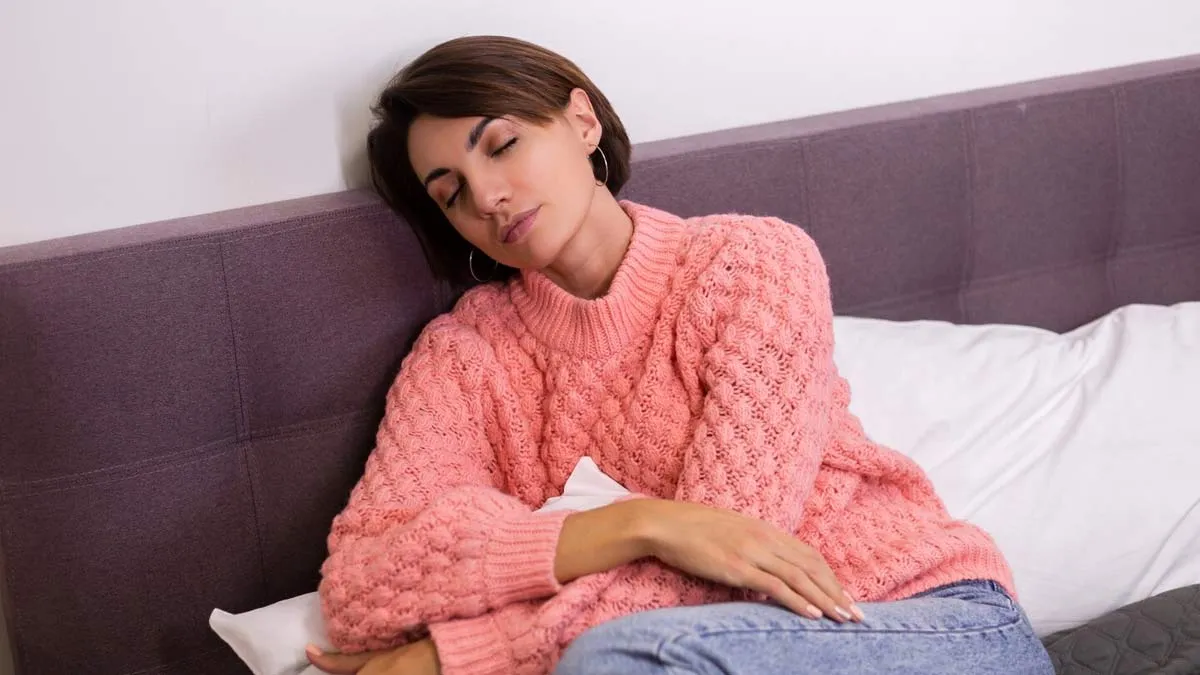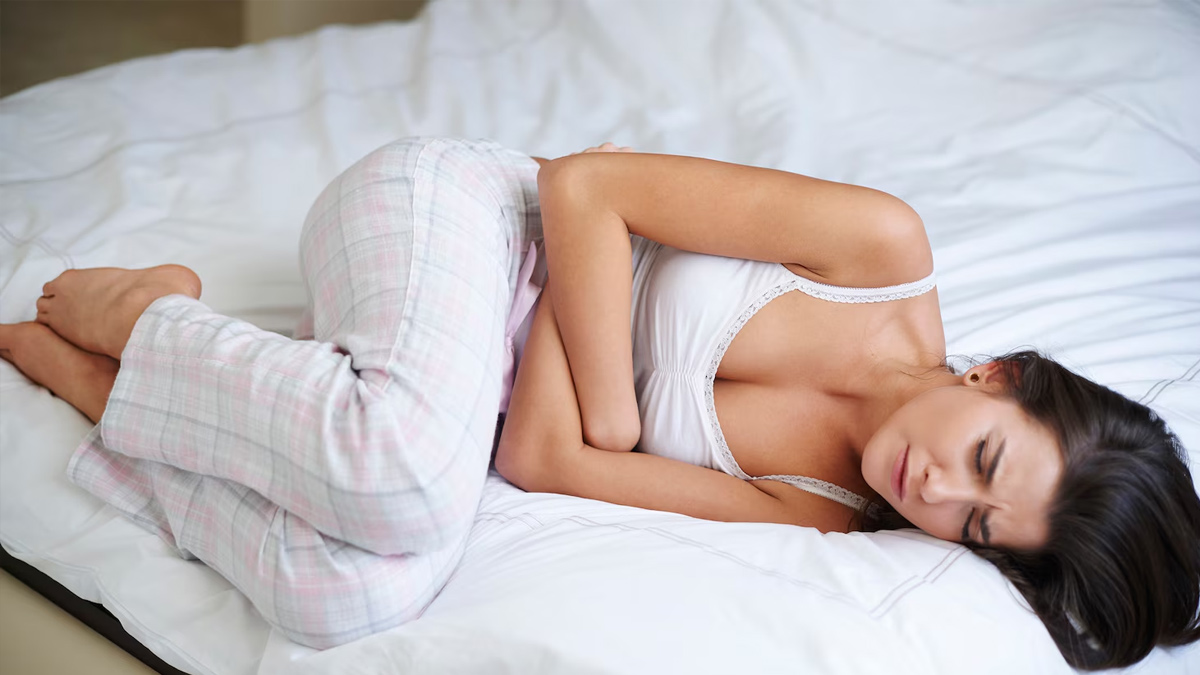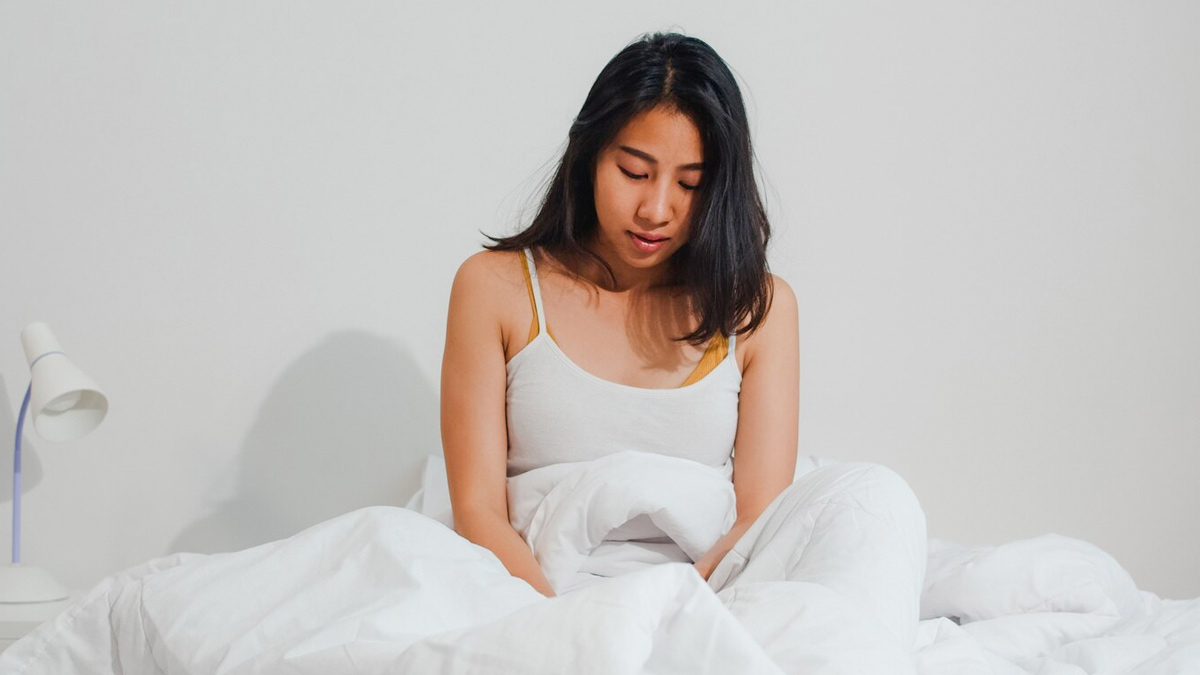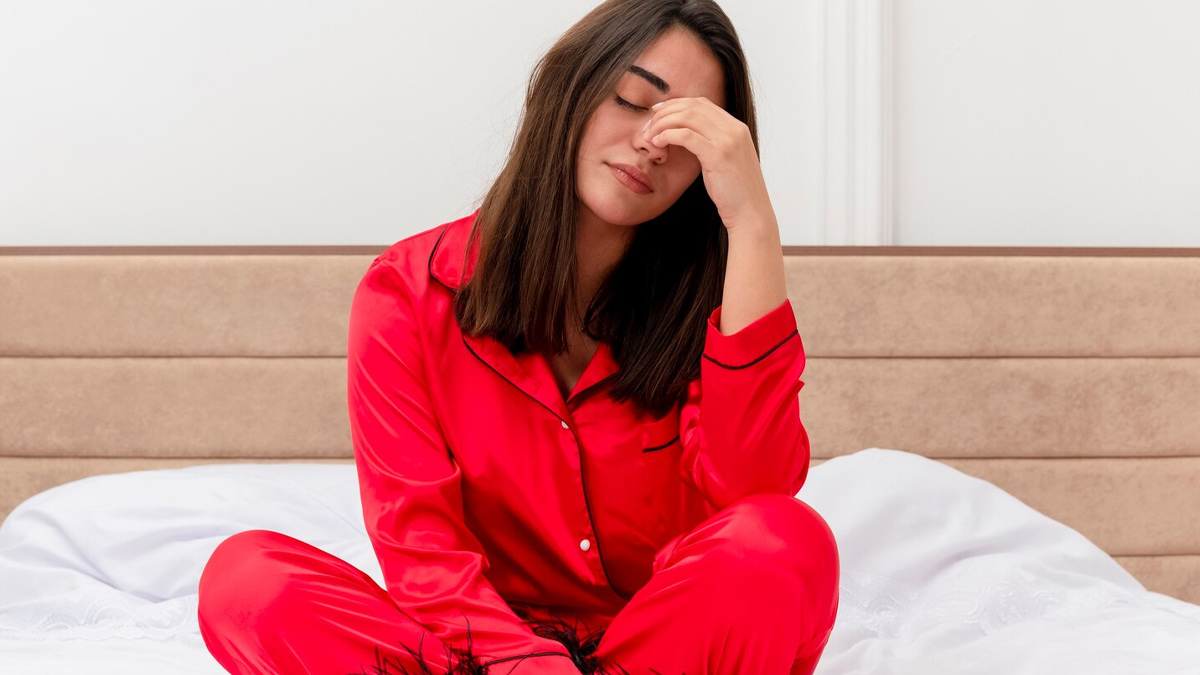
Menstrual symptoms vary from person to person. Moreover, it can change with age. For 29-year-old Shivani Dhawan (name changed), in her early 20s, she felt bloated and gassy throughout her period. While it caused some discomfort, it didn’t really affect her daily activities. However, as she entered her late 20s, her symptoms took a more severe turn. More than discomfort, to her, menstruation has become all about pain – headaches, leg numbness/tingling, and breast tenderness. In addition, she feels sleepier than ever, which medical experts often refer to as menstrual fatigue, characterised by the feeling of increased tiredness and lack of energy that can occur before or during a period.
Table of Content:-
To understand the reason behind why some women feel extremely sleepy and fatigued during menstruation, the OnlyMyHealth team interacted with Dr Teji Dawane, Senior Consultant, Obstetrician and Gynaecologist, Motherhood Hospitals, Whitefield, Bengaluru.
Also Read: Why You Feel Weighed Down Before Your Period: Management Tips For Premenstrual Fatigue
Why Do Women Feel More Sleepy During Their Periods?

It is important to note that menstrual fatigue is real and occurs quite frequently because the body works above average. Dr Dawane explained, "Shifts in hormones, blood loss, cramping and irritability are the body’s tell-tale signs suggesting lack of sleep and the reason why one may be excessively fatigued and more sluggish."
In simple words, women often feel sleepier during their period due to hormonal shifts, specifically falling oestrogen and progesterone, which impact sleep-regulating hormones like serotonin. According to the doctor, decline can happen due to loss of blood, which tires out the body, particularly the muscles, due to the shortage of oxygen. "Fall-off in oestrogen and progesterone leading up to and during your period can interfere with energy, and blood loss, particularly heavy, can cut down on iron and oxygen delivery to tissues, contributing to tiredness. This is the reason why women experiencing heavy periods experience more tiredness than others."
Additional factors contributing to period fatigue include iron deficiency anaemia from heavy bleeding, disrupted sleep from period pain and discomfort, and increased body temperature that can hinder comfortable sleep.
Can Menstrual Fatigue Indicate Underlying Health Issue?

"Fatigue is prevalent among the majority of menstruating women," Dr Dewane said. However, in women experiencing sleep fatigue, the underlying cause can be more serious conditions, such as anaemia, thyroid problems, or endometriosis.
According to the World Health Organization (WHO), menstruating adolescent girls and women, along with young children and pregnant and postpartum women, are more at risk of developing anaemia, a condition in which the number of Red Blood Cells (RBCs) or the haemoglobin concentration within them is lower than normal.
If you have too few or faulty RBCs, or not enough haemoglobin, your blood can't carry enough oxygen to your body, leading to fatigue and other symptoms.
Also Read: 7 Ways To Deal With Menstrual Fatigue
How To Manage Fatigue And Sleepiness During Periods?

The good news is that tiredness and fatigue during periods are manageable. While it resolves on its own once your period is over, there are dietary or medical remedies that can help manage menstrual sleepiness and fatigue. These include:
- Eating a diet high in iron content
- Reducing carb dependence, particularly processed sugars
- Avoiding overconsumption of caffeine
- Drinking a good quantity of water
- Doing some form of physical activity such as walking or yoga
- Following a consistent sleep schedule and ensuring a good quality sleep
Additionally, Dr Dewane discussed the role of hormonal therapy in a few cases. She shared that it assists in regulating cycles and energy.
Conclusion
Period fatigue is real, and extreme sleepiness can be a common consequence sign. While several factors can contribute to it, severe underlying conditions, like anaemia and thyroid problems, should be addressed immediately. Maintaining a healthy diet and ensuring regular exercise can go a long way in managing your symptoms. “Always see a gynaecologist first before taking medication or supplements since the correct treatment should be based on your unique health condition,” Dr Dewane concluded.
Also watch this video
How we keep this article up to date:
We work with experts and keep a close eye on the latest in health and wellness. Whenever there is a new research or helpful information, we update our articles with accurate and useful advice.
Current Version